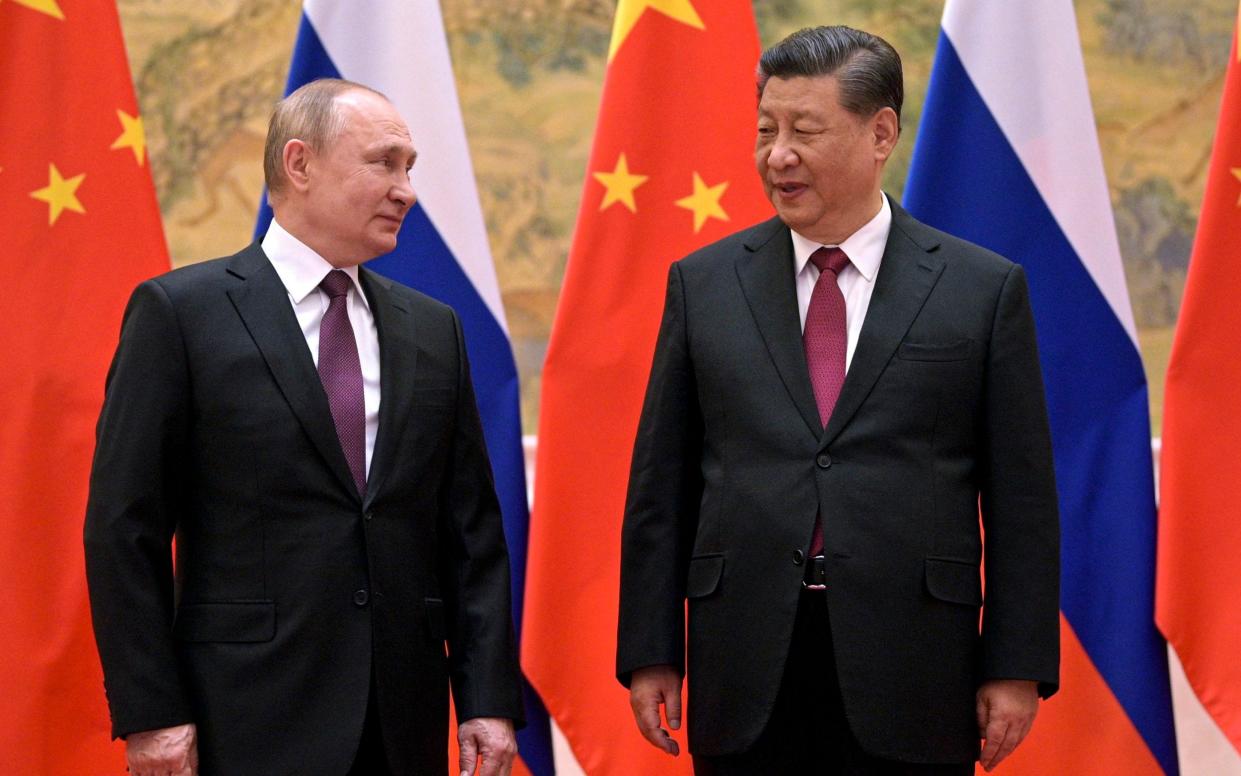China denies Russia has invaded Ukraine amid fears of a tipping point to new world order

China on Thursday morning denied Russia invaded Ukraine as it urged restraint from all sides.
Beijing refused to characterise Russia’s actions as an ‘invasion’ when prompted by foreign journalists but stopped short of publicly taking a side.
The comments are likely to fuel fears that China's growing links with Russia could help cement a new bipolar world order.
The Telegraph understands that senior Ukrainian officials view Russia's invasion a “clash of civilisations” – an ultimate showdown between East and West that hinges on whether China chooses to support Russia.
Experts believe China could help Russia weather the worst of sanctions imposed by the West over the Ukraine conflict.
China’s ambassador to the UN said early on Thursday morning: “At present, to avoid intensifying conflicts, China will continue to promote peace and talks in its own way.”
Beijing has long claimed that it won’t “meddle” in the internal affairs of other nations – a line it uses to bow out of tricky geopolitical situations and to denounce other countries for criticising its human rights abuses and other issues.
A joint statement released after Mr Putin met with Chinese leader Xi Jinping in Beijing on an official visit made clear that Beijing aligned with Moscow in opposing Nato expansion.
Chinese state media have also received censorship directives ordering them not to post anything critical of Russia or favourable to NATO, with all content to be reviewed by the government propaganda department.
The censorship order underscores Beijing’s delicate balancing act, though it is not unusual or rare as all news and information is controlled by the Chinese government.
As active conflict erupts, China is the one nation in the world that can support Russia – keeping supply chains open during wartime, potentially dispatching military reinforcements, and helping to weather the impact of economic sanctions.
“The level of Chinese support for Russian actions could be an influential factor in shaping an evolving crisis,” Tom Rafferty, a Beijing-based analyst with the Economist Intelligence Unit told the Financial Times.
Beijing would be risking its own reputation on the world stage on Russia’s behal, would drive a further wedge in its dealings with the EU, and could cause the bottom to fall out with the US – a relationship that was already on the rocks.
China would also be essentially hurting its own economic interests in Ukraine as the nation’s largest trading partner. Trade between the two nations hit $17.36 billion (£12.8 billion) from January to November last year, 13 per cent more than trade from all of 2020.
In 2014, Crimea held a referendum in which 97 per cent of voters wanted to break off from Ukraine and join Russia. Western nations pushed back against the measure, while Moscow said it would recognise the decision.
China, however, abstained, likely given its own concern of maintaining its own sovereignty. If Beijing recognised the Crimean referendum, that could pave the way for regions including Xinjiang and Tibet, where separatist tendencies have long simmered, to engage in a similar process.

 Yahoo News
Yahoo News 
